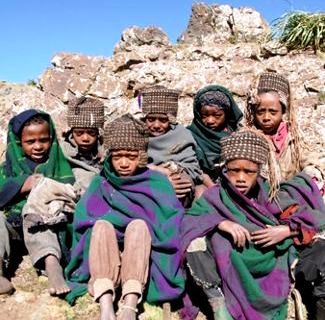 Montreal – South Africa has become the 12th country, and the first in 2013, to ratify the Nagoya Protocol on Access to Genetic Resources and the Fair and Equitable Sharing of Benefits Arising from their Utilization to the Convention on Biological Diversity (CBD).
Montreal – South Africa has become the 12th country, and the first in 2013, to ratify the Nagoya Protocol on Access to Genetic Resources and the Fair and Equitable Sharing of Benefits Arising from their Utilization to the Convention on Biological Diversity (CBD).
South Africa deposited its instrument of ratification on 10 January 2013. Thus South Africa joins Ethiopia, Fiji, Gabon, India, Jordan, Lao People’s Democratic Republic, Mauritius, Mexico, Panama, Rwanda and the Seychelles as countries that have ratified the ground-breaking treaty.
The Nagoya Protocol will enter into force on the 90th day after the date of deposit of the 50th instrument of ratification, acceptance, approval or accession. Ninety-two Parties signed the Protocol at the closure of signature on 1 February 2012, highlighting the commitment of countries to the early entry into force and implementation of the Protocol.
“I am pleased to congratulate South Africa, the first mega-diverse country in Africa to ratify the Nagoya Protocol,” said Braulio Ferreira de Souza Dias, Executive Secretary to the Convention on Biological Diversity. “We are firmly on track for entry into force in time for the twelfth meeting of the Conference of the Parties to the Convention on Biological Diversity.”
“It is indeed a pleasure, for South Africa to be counted amongst the first 50 Countries that will contribute to the early entry into force of the Protocol. South Africa ranks amongst the top three world’s most biologically diverse countries. South Africa will be greatly assisted by the provisions of the Protocol as they strongly encourage user countries to respect and also ensure compliance with the national legislation, policies and procedures of the provider countries,” said Edna Molewa, Minister of Water and Environmental Affairs of South Africa.
At the eleventh meeting of the Conference of the Parties to the Convention on Biological Diversity, held in Hyderabad, India, in October 2012, it was decided to reconvene the Open-ended Ad Hoc Intergovernmental Committee for the Nagoya Protocol (ICNP) for a third meeting to address outstanding issues in its work plan in preparation for the first meeting of the Conference of the Parties serving as the meeting of the Parties to the Protocol.
The Conference of the Parties also highlighted the importance of capacity-building and development initiatives and awareness-raising activities to support the ratification, early entry into force and implementation of the Protocol, and a number of activities are planned for the next biennium.
In Hyderabad, Parties were also invited to initiate and expedite their internal processes for the ratification of the Protocol. It was decided that the ICNP, at its third meeting, would exchange views on the state of implementation of the Protocol.
Background
Heads of State and Government at the World Summit on Sustainable Development, held in Johannesburg in September 2002, first recognized the need for an international regime to promote and safeguard the fair and equitable sharing of benefits and called for negotiations to be carried out within the framework of the Convention on Biological Diversity. The Conference of the Parties to the Convention responded at its seventh meeting, in 2004, by mandating its Ad Hoc Open-ended Working Group on Access and Benefit-sharing to elaborate and negotiate an international regime on access to genetic resources and benefit-sharing to effectively implement Articles 15 (Access to Genetic Resources) and 8(j) (Traditional Knowledge) of the Convention and its three objectives.
The Nagoya Protocol significantly advances the objective of the Convention on the fair and equitable sharing of benefits arising from the utilization of genetic resources by providing greater legal certainty and transparency for both providers and users of genetic resources. Specific obligations to support compliance with domestic legislation or regulatory requirements of the Party providing genetic resources and contractual obligations reflected in mutually agreed terms are a significant innovation of the Nagoya Protocol. These compliance provisions as well as provisions establishing more predictable conditions for access to genetic resources will contribute to ensuring the sharing of benefits when genetic resources leave a Party providing genetic resources. Also, the Protocol’s provisions on access to traditional knowledge held by indigenous and local communities when it is associated with genetic resources will strengthen the ability of these communities to benefit from the use of their knowledge, innovations and practices.
By promoting the use of genetic resources and associated traditional knowledge, and by strengthening the opportunities for fair and equitable sharing of benefits from their use, the Protocol will create incentives to conserve biodiversity, sustainably use its components, and further enhance the contribution of biodiversity to sustainable development and human well-being.
Source: CBD.



















